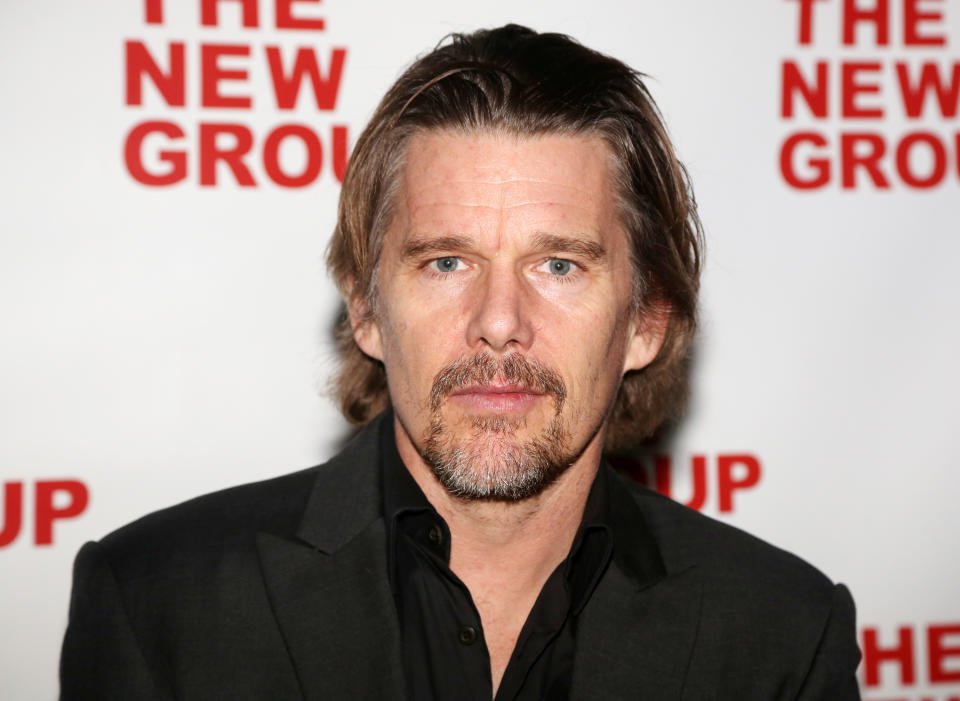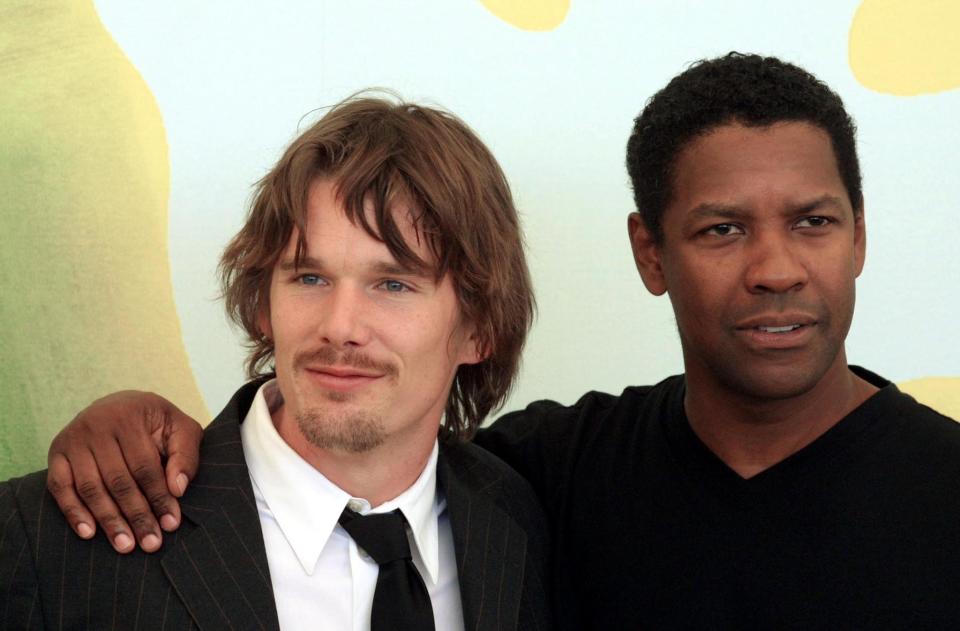Ethan Hawke says River Phoenix's death was a 'big lesson': 'He was the brightest light and this industry chewed him up'
Between Before Sunrise and Reality Bites, Ethan Hawke established himself as the Generation X poster boy for indie boyfriends — or one of them, at least. As Hawke, now a 50-year-old father of four, notes in a new interview with the Guardian’s Hadley Freeman, fellow tousled hair teen idol River Phoenix was both a collaborator and competitor, and ultimately, a “big lesson” about the dangers of fame.
Both Hawke and Phoenix were just 14 when they made their respective film debuts in 1985’s Explorers. But the film was a flop, and not long after, Hawke missed out on a role in 1986’s Stand by Me because director Rob Reiner “just gave the part to another kid with a bird name.”
On Oct. 31, 1993, a 23-year-old Phoenix died of a drug overdose, a tragic loss his old friend Hawke says has gone on to shape his own relationship with Hollywood.

“You know what you asked me about earlier, why I don’t make easier movies?” he says, noting his varied career peppered with indie projects. “Well, my first screen partner overdosed on Sunset Boulevard, you know? He was the brightest light and this industry chewed him up, and that was a big lesson to me. If I had to put a single reason on why I never moved to L.A., it would be I think it’s too dangerous for an actor like me to be in that kind of climate.”
Hawke, currently playing abolitionist John Brown in The Good Lord Bird, also reflected on the unexpected deaths of other co-stars, including Dead Poets Society’s Robin Williams, who died by suicide, and friend Philip Seymour Hoffman, whose 2014 death was ruled an accidental overdose.
“Drugs and alcohol and depression are formidable opponents all over the world,” he says. “People think getting what you want will make you happy, but a sense of self, purpose and love don’t come from the outside. You can’t get distracted by this culture that celebrates things that sometimes aren’t what they seem.”

The interview also sees Hawke address whether or not the film Training Day, which earned co-star Denzel Washington a Best Actor Oscar and himself a nomination for his supporting role, still holds up. Freeman points out that Washington’s crooked detective is the film’s villain, while other characters of color are largely criminals, with Hawke, a white man, as the good guy. But the star defended the film, insisting it was “radical” and “liberating” for popular leading man Washington to take on a bad guy role.
“People were not as optically oriented as they are now, and there are some benefits for being optically oriented, but it can also [mean there’s] no substance underneath it,” Hawke says. “Sidney Poitier was shackled with having to be a hero all the time, so there was something liberating about what Denzel was doing. So, if you simplify it optically, you take out what was radical about what Denzel was doing.
“You can’t just call Denzel ‘a black actor,’” he adds. “He’s one of the greatest actors of all time — he transcended. He’s a great actor with that Tom Cruise glow and Paul Newman charisma, and him playing a bad guy at that moment was radical.”
Elsewhere in the interview, the actor and writer is asked about Harvey Weinstein, whom ex-wife Uma Thurman has accused of sexually assaulting her in the 1990s. Thurman went public about her experience with the convicted producer in a 2018 New York Times article, which also recounted a Kill Bill film shoot in which she felt directer Quentin Tarantino, with whom she has since made amends, had put her in danger.
“There wasn’t anything I read from anybody in any paper that I didn’t already know,” Hawke says. “My ex-wife has spoken up and, put simply, she was very kind. She has much justifiable anger.”
Read more from Yahoo Entertainment:
Joaquin Phoenix, Rooney Mara welcome a baby boy named River — after actor’s late brother
Chris Evans and Aly Raisman had a play date with their rescue dogs
Cazzie David calls heartbreak over Pete Davidson and Ariana Grande a 'pivotal moment in my life'

